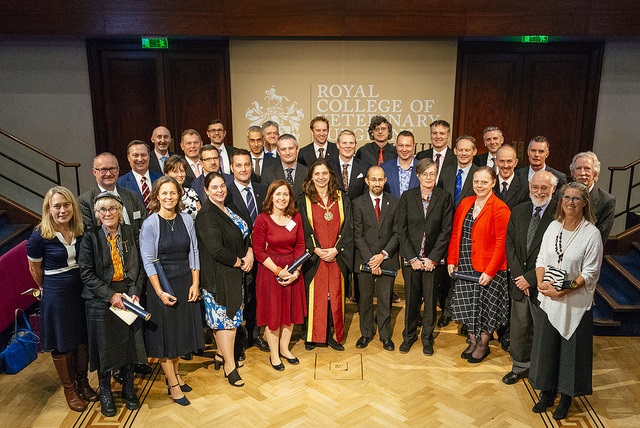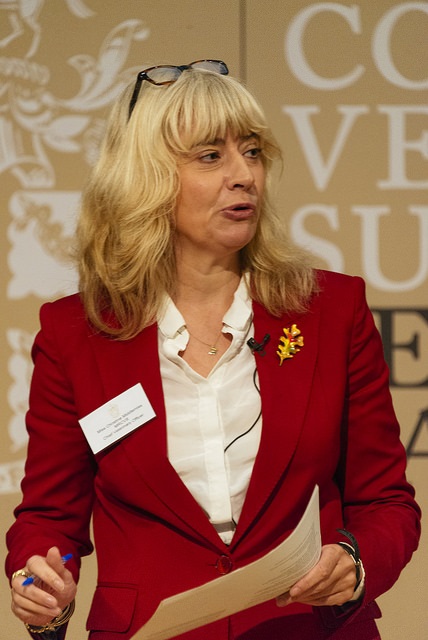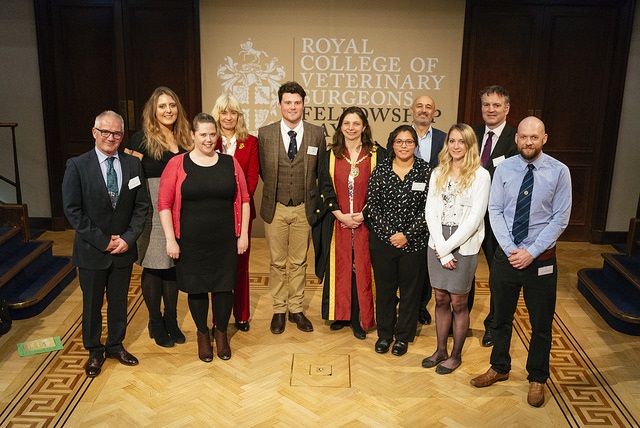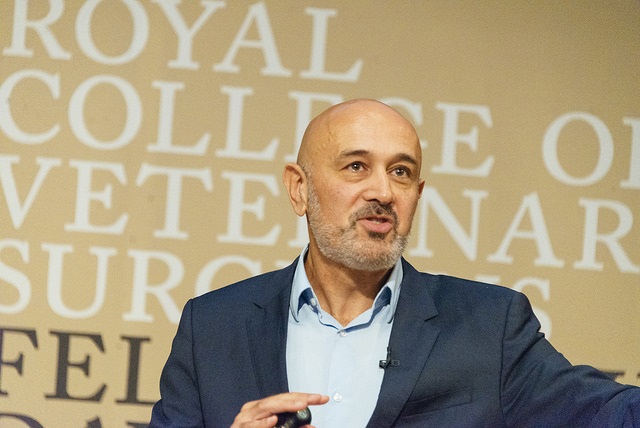-
-
- Council Members
- Role of Council Members
- Council meetings
- Council elections
- Previous election results
- Dr Louise Allum
- Dr Sam Bescoby
- Dr Andrew Clemence
- Dr Tshidi Gardiner
- Dr Reginald Godwin
- Paddy Gordon
- Dr Danielle Greenberg
- Dr Gerard Henry
- Dr Richard Hillman
- Dr Benjamin Kennedy
- Dr Tom Lonsdale
- Dr Darren Partridge
- Martin Peaty
- Alison Price
- Dr Peter Robinson
- Dr Jennifer Simmons
- Dr Sadie Spencer
- Dr Mary Thomas
- William Wilkinson
- Dr Lara Wilson
- Past-Presidents
-
-
-
-
-
- About extra-mural studies (EMS)
- EMS requirements
- Information for vet students
- Information for EMS providers
- Information for vet schools
- Temporary EMS requirements
- Practice by students - regulations
- Health and safety on EMS placements
- EMS contacts and further guidance
- Extra-mural studies fit for the future
-
-
- Code of Professional Conduct for Veterinary Surgeons
- Code of Professional Conduct for Veterinary Nurses
- Contact the Advice Team
- XL Bully dog ban
- 'Under care' - guidance
- Advice on Schedule 3
- Controlled Drugs Guidance – A to Z
- Dealing with Difficult Situations webinar recordings
- FAQs – Common medicines pitfalls
- FAQs – Routine veterinary practice and clinical veterinary research
- FAQs – Advertising of practice names
- GDPR – RCVS information and Q&As
New strategy for the Fellowship outlined at special event
9 October 2018
At our third annual Fellowship Day, a series of ambitious proposals to continue the drive towards the Fellowship becoming a learned society was outlined to the assembled audience.
The Fellowship Day took place at the Royal Institution on Friday 5 October with an introduction to the proposals by Professor Nick Bacon, Chair of the Fellowship Board that is responsible for considering applications for Fellowship and its governance. These proposals had recently been agreed by RCVS Council at its meeting on Thursday 27 September.
He outlined three broad strategic areas for the Fellowship:
- Promoting scientific excellence: the Fellowship will support opportunities to advance veterinary standards by working collaboratively to examine the current knowledge base, identifying knowledge gaps, and supporting the translation of knowledge and research into veterinary practice.
- Furthering professional skills and practice and invigorating creativity: this includes committing the Fellowship to help enhance the professional skills and practice of all veterinarians, wherever they are on their career path, by sharing best practice. Under this path the Fellowship will also act as a spur for creative thinking and innovation to address the challenges faced by the profession.
- Promoting public awareness of veterinary science: under this ambition the Fellowship will aim to be one of the trusted and authoritative voices within the veterinary profession that is able to engage with the general public to raise awareness and understanding of veterinary science.
 In total 35 new Fellows (pictured right) were welcomed on the day – 17 for meritorious contributions to clinical practice; eight for meritorious contributions to knowledge; eight for meritorious contributions to the profession; and two for Fellowship by thesis. A full list of those welcomed to the Fellowship this year is available to download.
In total 35 new Fellows (pictured right) were welcomed on the day – 17 for meritorious contributions to clinical practice; eight for meritorious contributions to knowledge; eight for meritorious contributions to the profession; and two for Fellowship by thesis. A full list of those welcomed to the Fellowship this year is available to download.
Prior to welcoming the new Fellows, Professor Bacon added: “What can be immediately gleaned from our new Fellows is not merely their depth of knowledge and expertise, but also the breadth of work they represent. Which, when added together, offers some hint of the range, the richness, and the reach of our profession. This is important and needs to be celebrated for many reasons but, most of all, for the Fellowship because it highlights and demonstrates how professional background, specialism or interest is no barrier to becoming a Fellow.
“This sort of diversity is a prerequisite for a thriving learned society. Indeed, I view it as integral to ensuring the Fellowship’s growth, relevance and, over the long-term, its identity.” The platform was then handed to Christine Middlemiss (pictured right), the Chief Veterinary Officer for the UK, who gave a presentation on the future of the UK veterinary profession over the next 10 years. While Brexit was one of the key themes of her talk it also encompassed the need to continue to demonstrate that the UK is a world leader in animal health and welfare and continuing to build and uphold the trust between vets and the wider public. She was also keen to emphasise one of her key roles as CVO - highlighting the importance of vets working for the Government in areas such as certification, surveillance and disease control.
The platform was then handed to Christine Middlemiss (pictured right), the Chief Veterinary Officer for the UK, who gave a presentation on the future of the UK veterinary profession over the next 10 years. While Brexit was one of the key themes of her talk it also encompassed the need to continue to demonstrate that the UK is a world leader in animal health and welfare and continuing to build and uphold the trust between vets and the wider public. She was also keen to emphasise one of her key roles as CVO - highlighting the importance of vets working for the Government in areas such as certification, surveillance and disease control.
Following the CVO’s speech was the inaugural ‘Fellows of the Future?’ competition in which six current undergraduate veterinary students and recent postgraduates (pictured together right) were given the opportunity to present their current research to the assembled Fellows and a judging panel comprising Professor Nick Bacon, RCVS President Amanda Boag, Christine Middlemiss and guest speaker, the renowned physicist Professor Jim Al-Khalili.  The winner of the competition was Robert Hyde, a postgraduate student at the School of Veterinary Medicine and Science at the University of Nottingham, with his presentation on antimicrobial usage and resistance in British cattle and sheep. His prize was two tickets to the VET19 Conference, organised by RCVS Knowledge, which takes place at The Oval cricket ground in London in June 2019 and which will explore quality improvement and the future of evidence-based veterinary medicine.
The winner of the competition was Robert Hyde, a postgraduate student at the School of Veterinary Medicine and Science at the University of Nottingham, with his presentation on antimicrobial usage and resistance in British cattle and sheep. His prize was two tickets to the VET19 Conference, organised by RCVS Knowledge, which takes place at The Oval cricket ground in London in June 2019 and which will explore quality improvement and the future of evidence-based veterinary medicine.
The presentation by undergraduate student Louise Scanlon, also of the University of Nottingham, on the bond between homeless people and their dogs was judged highly commended by the panel.
There then followed ‘Fellows in Focus’, a series of seven 10-minute talks from new and existing Fellows on a topic of their choice. These were:
- ‘International vet work – methods, mayhem and madness,’ by Dr Luke Gamble, the CEO and founder of the charities Worldwide Veterinary Service and Mission Rabies;
- ‘Is the art of the physical exam dying?’ by Professor Gayle Hallowell, Professor of Veterinary Internal Medicine and Critical Care at the University of Nottingham;
- ‘Dealing with the worm that turned…’ by Professor Jacqui Matthews, an RCVS Specialist in Veterinary Parasitology currently based at the Moredun Research Institute;
- ‘Complexity of common diseases,’ by Professor Peter Muir, Melita Grunow Family Professor of Companion Animal Health at the University of Wisconsin-Madison from the United States;
- ‘Why 99% of the world’s equine vets treat only 10% of the world’s equids. How can we start to redress this imbalance?’ by Dr Gigi Kay, Director of an American NGO – the American Fondouk, which provides charitable veterinary care in Morocco;
- ‘Whose best interest?’ by Dr Polly Taylor, an RCVS Specialist in Veterinary Anaesthesia, who presented on the ethical issues around ‘overtreatment’; and,
- ‘Leadership – observations and learnings during a clinical, academic and commercial career,’ by Dr Simon Wheeler, an RCVS Specialist in Veterinary Neurology who has worked in the veterinary pharmaceutical industry for the past 18 years.
Following the Fellows in Focus presentations was the keynote speaker – Professor Jim Al-Khalili, Professor of Physics and Public Engagement in Science at the University of Surrey, on the importance of science communication.  Professor Al-Khalili (pictured right) gave an overview of the development of science communication over the last few decades – from something that was the preserve of experts, to the boom in popular science books, radio shows and television programmes in recent years.
Professor Al-Khalili (pictured right) gave an overview of the development of science communication over the last few decades – from something that was the preserve of experts, to the boom in popular science books, radio shows and television programmes in recent years.
He stressed that veterinary surgeons, as scientists, had a role in helping to educate the public about their work and research and that, while scientists often avoided the media spotlight for fear of misinterpretation, it was important that evidence-based science did receive public engagement so that people were better informed.
His final point was on the coming revolution in Artificial Intelligence (AI) which he believed would transform society in the next 25 years. He said that society had not yet been sufficiently prepared for its implications and that there needed to be more discussion about its impact on employment, health, culture and the social fabric. He encouraged these discussions to take place in order to limit the backlash against AI and ensure that its benefits are spread across society.
For more information about the Fellowship – and to find out how to make an application to join – visit our dedicated Fellowship page. The application period for the 2019 cohort of Fellows is currently open until Monday 4 February 2019.
Videos and written reports from the Fellowship Day will also be available in due course.